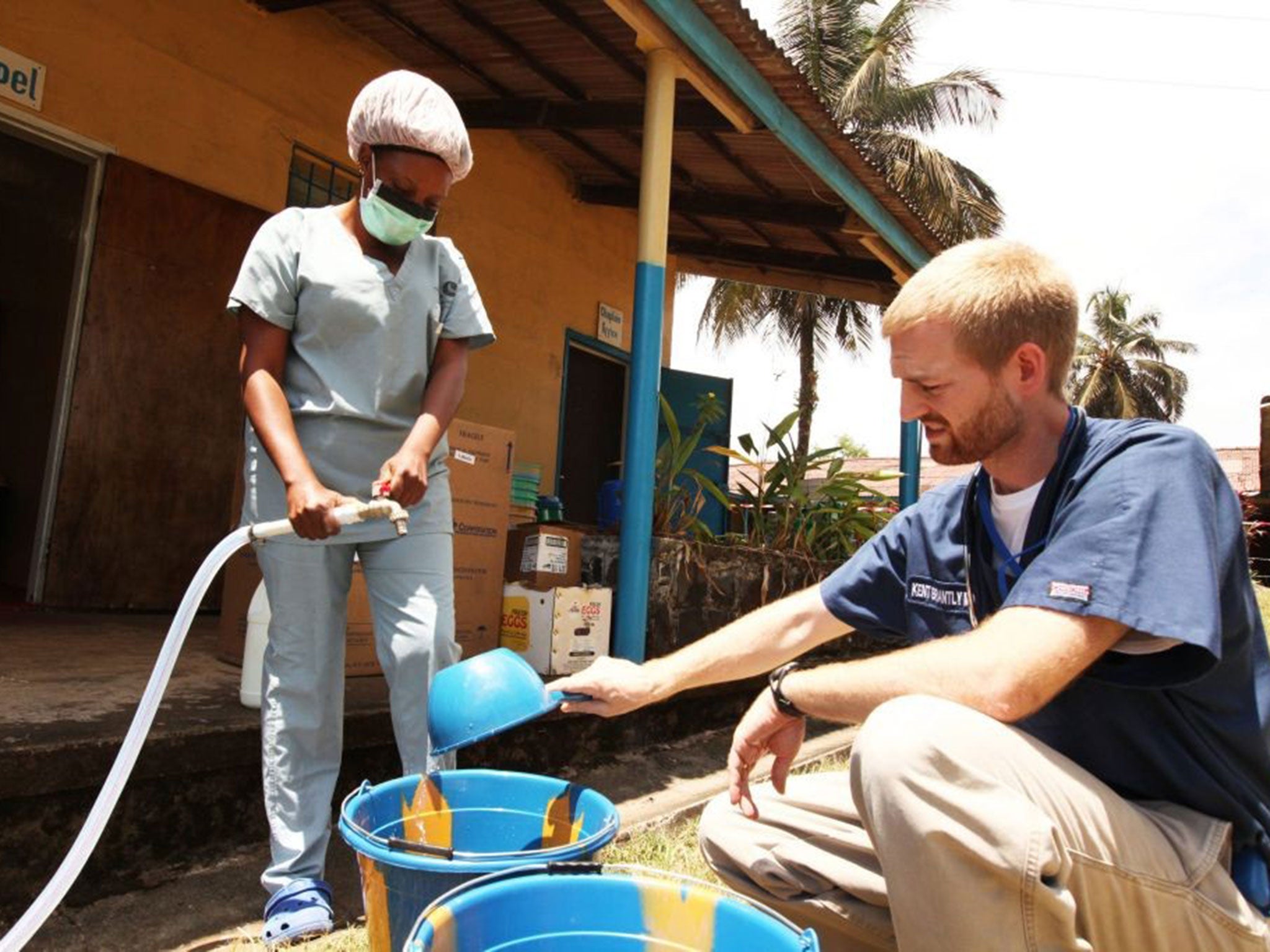They'd find a cure if Ebola came to London
The spotlight needs to be on the poverty and squalor in which these epidemics thrive

Your support helps us to tell the story
From reproductive rights to climate change to Big Tech, The Independent is on the ground when the story is developing. Whether it's investigating the financials of Elon Musk's pro-Trump PAC or producing our latest documentary, 'The A Word', which shines a light on the American women fighting for reproductive rights, we know how important it is to parse out the facts from the messaging.
At such a critical moment in US history, we need reporters on the ground. Your donation allows us to keep sending journalists to speak to both sides of the story.
The Independent is trusted by Americans across the entire political spectrum. And unlike many other quality news outlets, we choose not to lock Americans out of our reporting and analysis with paywalls. We believe quality journalism should be available to everyone, paid for by those who can afford it.
Your support makes all the difference.With more than 700 deaths in West Africa since February in the largest outbreak of this devastating and almost always fatal disease, Ebola has finally made it on to the front pages.
Whether this is because we are in the "silly season", or because there is now the threat of cases other than of poverty-stricken Africans, can be debated but the Cabinet's Cobra emergency committee has met, and Philip Hammond has pronounced. Ebola and Gaza are now sharing the limelight as the major news stories of the summer eclipsing domestic issues, a rare event.
Perhaps the horror of this disease as described in novelist Robin Cook's terrifying 1987 medical horror story Outbreak has something to do with it too, but faced with dramatic headlines on the one hand or ministerial reassurance on the other, what is the public meant to make of it all?
From a public health point of view, health emergencies usually fall into one of three kinds; slow burn, rising tide, or big bang. With a new infection such as this, which first emerged in 1976, as with Aids which emerged, probably from West Africa, at the same time, the lack of experience of dealing with it means that the pattern of spread is initially unclear.
However, in both cases it seems that the involvement of powerless minority groups has contributed to a tardiness of response and a failure to mobilise an adequately resourced international medical response. In the case of Aids, it took years for proper research funding to be put in place and it was only when so-called "innocent" groups were involved (women and children, haemophiliac patients and straight men) that the media, the politicians and the scientific community and funding bodies took notice.
So, in trying to strike the balance between complacency and panic, we should welcome the prominence given to Ebola over the past week. Most developed countries should be able to cope with any cases that turn up in their own backyards, and the UK is no different (notwithstanding concerns about the chaos in the NHS produced by Andrew Lansley).
The real spotlight needs to be on the poverty and environmental squalor in which epidemics thrive, and the failure of political leadership and public health systems to respond effectively. The international community has to be shamed into real commitment to the millennium goals for international development if the root causes of diseases like Ebola are to be addressed. And yes, as with the cholera in British cities in the 1840's, the fact that the privileged were not exempt from being infected meant that enlightened self interest concentrated minds. In a shrinking world of long-haul flights, no reassurance by politicians can be copper-bottomed.
So, what is to be done? There are already signs of increases in resources being made available, but if the experience of Aids is anything to go by, this may turn out to be smoke and mirrors, with funds being re-badged and failing to turn up on the ground. Photographs of the clinical conditions of health workers on social media this week have been truly shocking. We must respond to this emergency as if it was in Kensington, Chelsea, and Westminster. And we must "get real" over economic development.
We must also tackle the scandal of the unwillingness of the pharmaceutical industry to invest in research to produce treatments and vaccines, something they refuse to do because the numbers involved are, in their terms, so small and don't justify the investment. This is the moral bankruptcy of capitalism acting in the absence of an ethical and social framework. Ironically the European Union has a competence to engage with this agenda. Perhaps it is time that the UK took an interest!
Dr John Ashton CBE is president of the UK Faculty of Public Health
Join our commenting forum
Join thought-provoking conversations, follow other Independent readers and see their replies
Comments